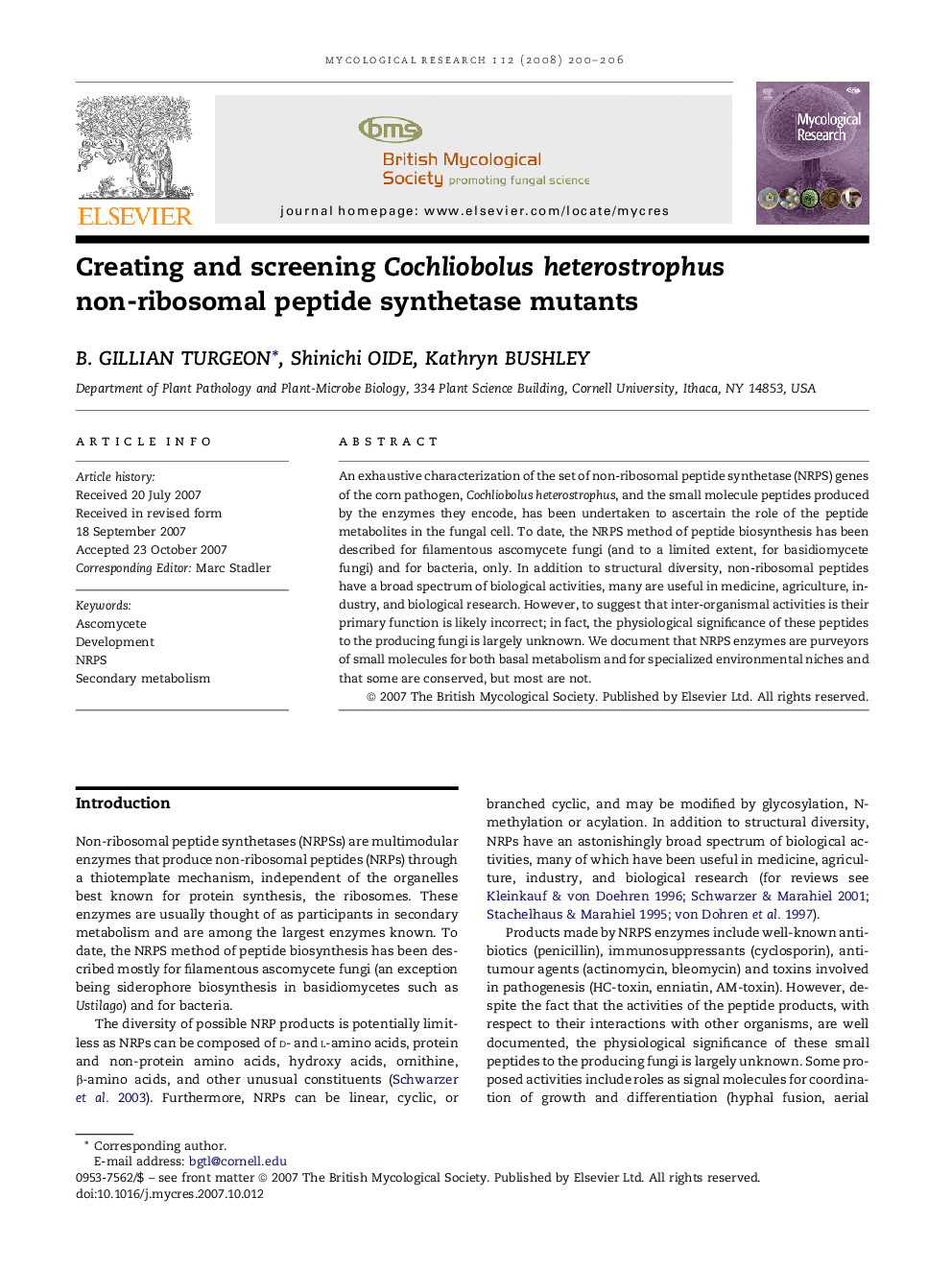| Article ID | Journal | Published Year | Pages | File Type |
|---|---|---|---|---|
| 4357842 | Mycological Research | 2008 | 7 Pages |
An exhaustive characterization of the set of non-ribosomal peptide synthetase (NRPS) genes of the corn pathogen, Cochliobolus heterostrophus, and the small molecule peptides produced by the enzymes they encode, has been undertaken to ascertain the role of the peptide metabolites in the fungal cell. To date, the NRPS method of peptide biosynthesis has been described for filamentous ascomycete fungi (and to a limited extent, for basidiomycete fungi) and for bacteria, only. In addition to structural diversity, non-ribosomal peptides have a broad spectrum of biological activities, many are useful in medicine, agriculture, industry, and biological research. However, to suggest that inter-organismal activities is their primary function is likely incorrect; in fact, the physiological significance of these peptides to the producing fungi is largely unknown. We document that NRPS enzymes are purveyors of small molecules for both basal metabolism and for specialized environmental niches and that some are conserved, but most are not.
